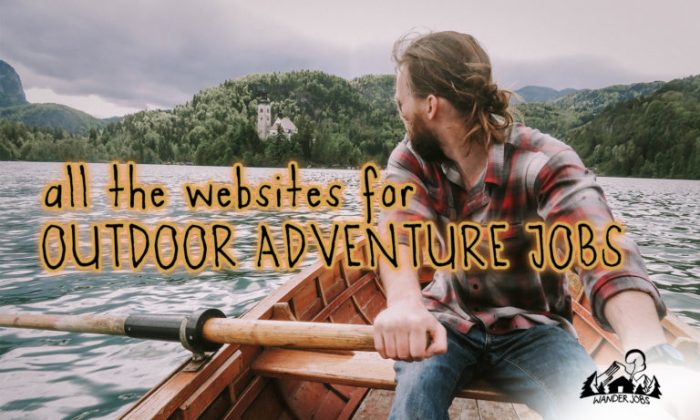Welcome to the thrilling world of adventure travel careers, where passion meets purpose. From adrenaline-pumping expeditions to immersive cultural experiences, this industry offers a multitude of opportunities for those seeking a life beyond the ordinary.
Whether you’re a seasoned adventurer or just starting your journey, this comprehensive guide will provide you with everything you need to know about this exciting field. From the types of careers available to the skills and qualifications required, we’ll cover it all, so you can make an informed decision about your future in adventure travel.
Adventure Travel Industry Overview
The adventure travel industry is a rapidly growing sector of the tourism industry, driven by increasing demand for unique and immersive travel experiences. Adventure travelers seek out activities that involve physical exertion, cultural immersion, and exposure to natural environments.
Adventure travel careers offer a unique opportunity to explore the world while getting paid to do it. But what if you’re young and don’t have the experience to lead your own group? That’s where travel groups for young people come in.
These groups are designed specifically for young travelers who want to experience the world without having to worry about the logistics. They offer a variety of trips to different destinations, so you’re sure to find one that’s right for you.
And because they’re led by experienced guides, you can rest assured that you’ll be safe and have a great time. So if you’re looking for an adventure, but don’t know where to start, check out travel groups for young people.
They’re a great way to see the world and make memories that will last a lifetime. And who knows, you might even decide to pursue a career in adventure travel yourself.
Scope and Growth
- The global adventure travel market was valued at USD 633.2 billion in 2021 and is projected to reach USD 1,435.1 billion by 2029, exhibiting a CAGR of 11.5% during the forecast period.
- The Asia-Pacific region is the largest adventure travel market, followed by North America and Europe.
Destinations and Activities
Popular adventure travel destinations include Nepal, Peru, New Zealand, Costa Rica, and South Africa.
Adventure activities include trekking, mountaineering, rafting, kayaking, and wildlife safaris.
Skills and Experience Required
Adventure travel professionals need a unique combination of physical, mental, and technical skills to excel in their roles. These skills include physical fitness, leadership abilities, and wilderness knowledge, which are essential for navigating challenging environments, managing teams, and ensuring the safety and enjoyment of clients.
Physical Fitness
Physical fitness is paramount for adventure travel professionals. They must be able to endure long hours of physical activity, often in rugged terrain. This includes hiking, biking, paddling, and climbing. They must also be strong enough to carry heavy gear and assist clients with their equipment.
Leadership Abilities
Leadership abilities are crucial for adventure travel professionals. They must be able to make quick decisions, manage teams, and solve problems in a variety of situations. They must also be able to inspire and motivate clients, especially when faced with challenges.
Wilderness Knowledge
Wilderness knowledge is essential for adventure travel professionals. They must be familiar with the natural environment in which they operate, including wildlife, weather patterns, and terrain. They must also be able to navigate using maps, compasses, and GPS devices.
Additional Skills and Experience
In addition to the core skills mentioned above, adventure travel professionals may also benefit from the following:
- First aid and emergency response training
- Communication and interpersonal skills
- Cultural sensitivity and language proficiency
- Technical skills (e.g., rock climbing, kayaking, skiing)
Training and Certification Programs
To advance in the adventure travel industry, training and certification programs can provide valuable knowledge, skills, and recognition. These programs offer specialized education and practical experience, enhancing professionals’ credibility and competitiveness in the field.
Obtaining certification demonstrates a commitment to professional standards, safety practices, and ethical conduct. It also provides a competitive edge in the job market, as employers seek individuals with specialized knowledge and skills.
Available Programs
- Adventure Travel Trade Association (ATTA) offers certification programs in Adventure Travel Planning, Adventure Travel Leadership, and Adventure Travel Management.
- National Outdoor Leadership School (NOLS) provides a range of wilderness and outdoor leadership courses, including certifications in Wilderness First Responder and Wilderness EMT.
- American Mountain Guides Association (AMGA) offers certifications in rock climbing, ice climbing, alpine climbing, and ski mountaineering.
- Professional Ski Instructors of America (PSIA) and American Association of Snowboard Instructors (AASI) provide certifications in skiing and snowboarding instruction.
- Scuba Schools International (SSI) and Professional Association of Diving Instructors (PADI) offer certifications in scuba diving.
Job Search and Networking
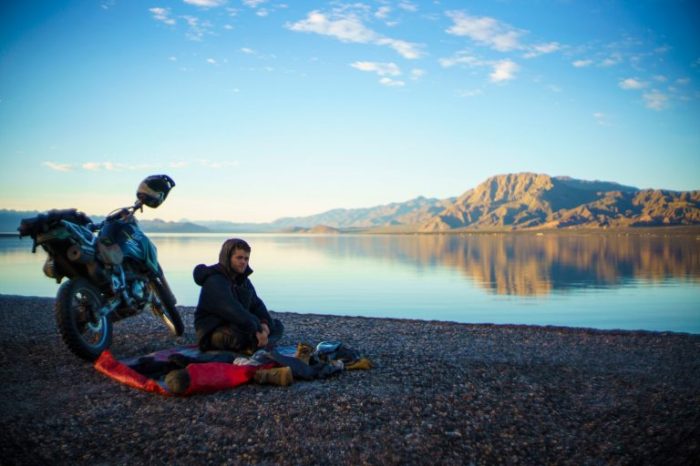
Finding adventure travel jobs requires a proactive approach and leveraging industry connections. Networking is crucial for uncovering hidden opportunities and staying informed about the latest job openings.
Job Search Strategies
– Explore industry-specific job boards such as AdventureJobs, Backcountry Employment, and GoAbroad.
– Reach out to adventure travel companies directly, even if they don’t have open positions listed.
– Attend industry events, conferences, and meetups to connect with potential employers.
– Utilize social media platforms like LinkedIn and Twitter to follow companies and engage with industry professionals.
Networking Importance
– Build relationships with industry leaders, recruiters, and other professionals through networking.
– Attend industry events and social gatherings to make connections and exchange information.
– Join professional organizations like the Adventure Travel Trade Association (ATTA) to stay updated on industry trends and network with peers.
– Seek mentorship opportunities from experienced professionals in the field to gain insights and guidance.
Career Advancement Opportunities
As you gain experience and expertise in adventure travel, numerous career advancement opportunities await you. These include:
- Trip Leader to Expedition Leader: As a trip leader, you’ll gain hands-on experience leading groups on various adventures. With time and proven leadership skills, you can progress to become an expedition leader, responsible for planning and executing complex expeditions in remote destinations.
- Adventure Travel Guide to Specialist Guide: As an adventure travel guide, you’ll share your knowledge and passion for specific destinations or activities. By specializing in a particular area, such as wildlife photography or rock climbing, you can become a highly sought-after specialist guide.
- Tour Operator to Adventure Travel Company Owner: With entrepreneurial spirit and industry experience, you can start your own adventure travel company. This path offers the freedom to design and operate unique trips that cater to your niche market.
Setting Goals and Developing a Career Plan
To maximize your career advancement opportunities, it’s crucial to set clear goals and develop a career plan. Consider the following steps:
- Self-Assessment: Evaluate your strengths, interests, and career aspirations. Identify areas where you excel and where you need to improve.
- Research: Explore different career paths and advancement opportunities in the adventure travel industry. Network with professionals and attend industry events to gather insights.
- Goal Setting: Establish specific, measurable, achievable, relevant, and time-bound (SMART) career goals. Break down your goals into smaller, manageable steps.
- Action Plan: Artikel the actions you need to take to achieve your goals. This may include acquiring additional skills, certifications, or seeking mentorship opportunities.
- Regular Review: Regularly assess your progress and make adjustments to your career plan as needed. Stay adaptable and open to new opportunities.
Adventure Travel Associations
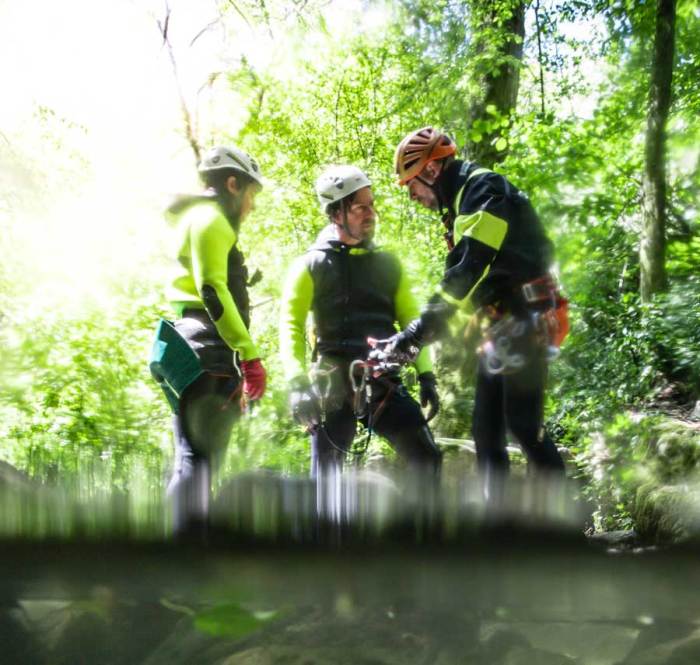
Adventure travel associations play a vital role in the industry by providing resources, networking opportunities, and professional development for adventure travel professionals. These organizations represent the interests of adventure travel companies, tour operators, guides, and other industry stakeholders. Joining an adventure travel association can provide a range of benefits, including access to industry news and trends, educational programs, certification programs, and networking opportunities.
Professional Associations for Adventure Travel Professionals
- Adventure Travel Trade Association (ATTA): The ATTA is a global trade association representing the adventure travel industry. It offers a range of benefits to members, including access to industry research, marketing and sales support, and networking opportunities. (Website: https://www.adventuretravel.biz, Phone: +1 (206) 209-3240, Email: [email protected])
- American Adventure Travel Association (AATA): The AATA is a non-profit organization representing the adventure travel industry in the United States. It offers a range of benefits to members, including access to educational programs, certification programs, and networking opportunities. (Website: https://www.adventurepro.org, Phone: +1 (202) 638-1444, Email: [email protected])
- Adventure Travel Guides Association (ATGA): The ATGA is a non-profit organization representing adventure travel guides. It offers a range of benefits to members, including access to training programs, certification programs, and networking opportunities. (Website: https://www.atga.org, Phone: +1 (888) 426-8374, Email: [email protected])
Benefits of Membership
Membership in an adventure travel association can provide a range of benefits, including:
- Access to industry news and trends
- Educational programs and certification programs
- Networking opportunities with other adventure travel professionals
- Marketing and sales support
- Advocacy and representation for the adventure travel industry
How to Get Involved
To get involved with an adventure travel association, you can visit their website or attend one of their events. Many associations also offer online forums and social media groups where you can connect with other members and learn more about the industry.
Choosing the Right Association for Your Needs
When choosing an adventure travel association, it is important to consider your specific needs and interests. Some factors to consider include:
- The size and scope of the association
- The benefits and services offered to members
- The cost of membership
- The association’s reputation and track record
By carefully considering these factors, you can choose the right association to help you advance your career in adventure travel.
“Adventure travel associations are essential for the growth and development of the industry. They provide a platform for professionals to connect, share ideas, and advocate for the interests of the adventure travel community.” – Johnathan Howe, CEO of Adventure Travel Trade Association
Case Studies of Successful Adventure Travel Professionals
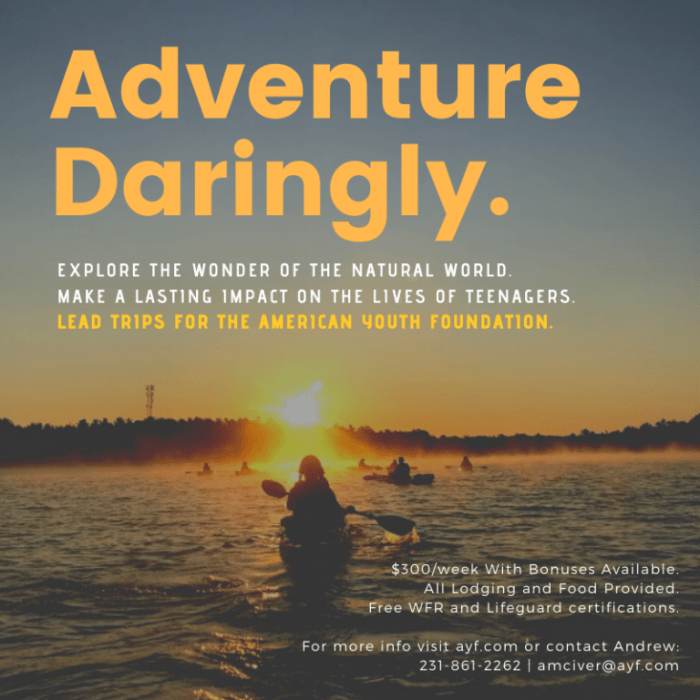
Delve into the inspiring journeys of individuals who have forged remarkable careers in the adventure travel industry. From fearless explorers to pioneering entrepreneurs, these case studies offer valuable insights into the challenges, triumphs, and lessons learned by those who have blazed trails in this dynamic field.
Through their stories, we gain a glimpse into the passion, determination, and unwavering commitment that drive these professionals to create unforgettable experiences for adventure seekers around the world.
Trailblazing Explorers
Meet adventurers who have pushed the boundaries of human endurance and discovery. Hear tales of their groundbreaking expeditions, their encounters with diverse cultures, and the transformative impact of their travels on their lives and the world.
- Ranulph Fiennes: The “World’s Greatest Living Explorer” has conquered some of the most extreme environments on Earth, including the North and South Poles and the summit of Mount Everest.
- Alexandra David-Neel: A pioneering French explorer and writer, she became the first Western woman to travel to Lhasa, Tibet, in 1924.
- Bear Grylls: Known for his survival skills and adventurous spirit, he has hosted numerous television shows showcasing his ability to thrive in the most challenging conditions.
Visionary Entrepreneurs
Discover the entrepreneurs who have revolutionized the adventure travel industry with their innovative ideas and unwavering dedication to providing exceptional experiences.
- Richard Branson: The founder of Virgin Group, he has created a global empire that includes adventure travel companies such as Virgin Galactic and Virgin Active.
- Yvon Chouinard: The founder of Patagonia, he has been a pioneer in sustainable adventure travel and environmental activism.
- Jane Goodall: The renowned primatologist and conservationist has founded the Jane Goodall Institute, which offers adventure-based educational programs to connect people with nature.
Lessons Learned
From these case studies, we can glean invaluable lessons that can guide our own journeys in the adventure travel industry.
- Embrace challenges: Successful adventure travel professionals are not afraid to step outside their comfort zones and take on new challenges.
- Pursue your passions: Find your niche in the industry that truly ignites your passion and motivates you to excel.
- Network and collaborate: Building relationships with other professionals and organizations can open doors to new opportunities and support your growth.
- Stay adaptable: The adventure travel industry is constantly evolving, so it’s essential to be adaptable and embrace change.
Discuss the Role of Adventure Travel Bloggers and Influencers in Promoting the Industry: Adventure Travel Careers
Adventure travel bloggers and influencers play a vital role in promoting the adventure travel industry by sharing their experiences, insights, and recommendations with their followers. They have the power to inspire and educate potential travelers, showcase new destinations and activities, and build trust and credibility for adventure travel brands.
Collaborating with adventure travel bloggers and influencers can be a highly effective way to reach a wider audience, build brand awareness, and drive bookings. Here are some tips for successful collaborations:
Identify the Right Influencers
It’s important to carefully select the influencers you want to work with. Look for individuals who have a strong following in your target market, share your brand values, and create high-quality content that resonates with your audience.
Set Clear Goals
Before reaching out to influencers, define your campaign goals. Do you want to increase website traffic, generate leads, or drive sales? Clearly communicating your objectives will help you measure the success of your collaboration.
Offer Value
Influencers are more likely to collaborate with brands that offer them something valuable in return. This could include complimentary trips, exclusive access to experiences, or payment for their services.
Measure Your Results
It’s essential to track the results of your influencer collaborations to determine their effectiveness. Use metrics such as website traffic, social media engagement, and sales conversions to measure the impact of your campaigns.
Ethical Considerations in Adventure Travel
Adventure travel professionals have a responsibility to conduct their operations in an ethical and sustainable manner. This includes minimizing environmental impact, respecting local cultures, and ensuring the safety of participants.
Environmental Conservation
Adventure travel can have a negative impact on the environment, such as through pollution, deforestation, and wildlife disturbance. Adventure travel professionals must take steps to minimize their impact, such as by using sustainable transportation methods, reducing waste, and educating participants about environmental conservation.
Cultural Sensitivity
Adventure travel can also have a negative impact on local cultures, such as through the introduction of foreign values and customs. Adventure travel professionals must be respectful of local cultures and traditions, and they must avoid exploiting or commodifying local people.
Safety
Adventure travel can be inherently dangerous, and adventure travel professionals must take steps to ensure the safety of participants. This includes providing adequate training and equipment, and following established safety protocols.
– Explain how to create a comprehensive health and safety plan for adventure travel activities.
Creating a comprehensive health and safety plan is crucial for ensuring the well-being of participants and staff during adventure travel activities. This plan should include detailed protocols for managing potential risks, responding to emergencies, and providing medical care.
Risk Assessment and Management
Conduct a thorough risk assessment to identify potential hazards associated with the activity. Evaluate the likelihood and severity of each hazard and develop mitigation strategies to minimize risks.
Emergency Procedures
Establish clear procedures for handling emergencies, including medical situations, accidents, and weather-related events. Train staff on emergency response protocols and ensure they have the necessary equipment and supplies.
Health and Safety Training
Provide comprehensive health and safety training to all staff and participants. This training should cover topics such as first aid, CPR, wilderness survival, and risk management.
Adventure travel careers offer an adrenaline-pumping life, exploring the world’s hidden gems. If you’re looking for an adventure vacation to kickstart your travel career, check out the best places for adventure vacation. These destinations offer thrilling activities like bungee jumping, zip-lining, and scuba diving.
The experience gained here will not only fuel your wanderlust but also provide invaluable skills for your future adventure travel career.
Communication and Teamwork
Effective communication and teamwork are essential for ensuring safety during adventure travel activities. Establish clear communication protocols and foster a culture of teamwork and cooperation among staff and participants.
For those with a thirst for adventure, a career in adventure travel offers the ultimate thrill ride. From exploring hidden gems to conquering epic summits, the possibilities are endless. But if you’re looking for a taste of the most unforgettable experiences life has to offer, be sure to check out the top 10 adventure trips of a lifetime.
These journeys will push your limits, create memories that will last a lifetime, and ignite a passion for adventure that will stay with you long after you’ve returned home. So, if you’re ready to embark on an extraordinary journey, consider a career in adventure travel and start living life on the edge.
Insurance and Liability Coverage
Obtain adequate insurance coverage to protect against potential liabilities and financial losses. This coverage should include medical evacuation, trip cancellation, and liability insurance.
Technology in Adventure Travel
Technology has revolutionized the adventure travel industry, enhancing safety, efficiency, and the overall experience for travelers. From GPS devices and satellite communication to booking platforms and mobile apps, technology has become an indispensable tool for adventure travelers.
GPS Devices
GPS devices have become essential for navigation in remote and unfamiliar areas. They allow travelers to track their location, follow trails, and find their way back to camp or civilization in case of an emergency.
Satellite Communication
Satellite communication devices, such as satellite phones and personal locator beacons (PLBs), provide a lifeline in areas where cell phone service is unavailable. They allow travelers to stay connected with emergency responders and loved ones, and to summon help in case of an accident or medical emergency.
Booking Platforms
Online booking platforms have made it easier than ever to plan and book adventure travel experiences. Travelers can compare prices, read reviews, and book tours, activities, and accommodations from the comfort of their own homes.
Mobile Apps, Adventure travel careers
Mobile apps offer a wide range of features for adventure travelers, including trail maps, weather forecasts, wildlife guides, and language translation tools. They can also be used to track fitness progress, share photos and videos, and connect with other travelers.
Future Trends in Adventure Travel
The adventure travel industry is constantly evolving, with new trends and innovations emerging all the time. These trends are shaping the industry in a number of ways, making it more accessible, personalized, and sustainable.
One of the most significant trends in adventure travel is the rise of virtual reality (VR) and augmented reality (AR) experiences. These technologies allow travelers to experience new destinations and activities from the comfort of their own homes. For example, some companies offer VR tours of the Great Barrier Reef, while others offer AR experiences that allow travelers to explore ancient ruins.
Another major trend in adventure travel is the growing focus on sustainable and eco-friendly practices. Travelers are increasingly looking for ways to reduce their environmental impact while on vacation. This has led to a rise in popularity of eco-friendly travel companies that offer tours that are designed to minimize environmental impact.
Finally, there is a growing trend towards niche and specialized experiences. Travelers are increasingly looking for unique and personalized experiences that are tailored to their specific interests. This has led to a rise in popularity of small-group tours and customized itineraries.
These trends are having a number of positive impacts on the adventure travel industry:
- Increased accessibility: VR and AR experiences are making adventure travel more accessible to people who may not be able to travel physically.
- Personalized experiences: Niche and specialized experiences are allowing travelers to find tours that are tailored to their specific interests.
- Growth in experiential and immersive travel: VR and AR experiences, as well as niche and specialized tours, are providing travelers with more immersive and experiential travel experiences.
- Focus on sustainability: The growing focus on sustainable and eco-friendly practices is helping to reduce the environmental impact of adventure travel.
Here are some specific examples of how these trends are already being implemented by travel companies:
- Intrepid Travel offers a range of VR tours, including a tour of the Great Barrier Reef and a tour of the Amazon rainforest.
- G Adventures offers a range of eco-friendly tours, including a tour of the Galapagos Islands and a tour of Costa Rica.
- Backroads offers a range of small-group tours, including a tour of the Italian Dolomites and a tour of the Scottish Highlands.
Conclusion
The future of adventure travel is bright. The trends that are shaping the industry are making it more accessible, personalized, and sustainable. As these trends continue to develop, we can expect to see even more innovative and exciting ways to experience the world.
Closure
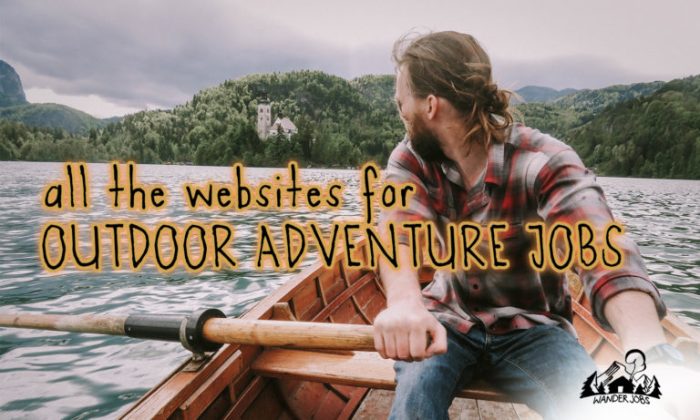
As you embark on your adventure travel career, remember that it’s not just about the destinations you visit or the activities you experience. It’s about the transformative power of travel to broaden your horizons, challenge your limits, and create memories that will last a lifetime.
So, embrace the unknown, step outside your comfort zone, and let the world of adventure travel take you on an extraordinary journey.
Question & Answer Hub
What types of adventure travel careers are available?
Adventure travel careers encompass a wide range of roles, including tour guides, expedition leaders, outdoor educators, travel writers, and photographers.
What skills are essential for adventure travel professionals?
Physical fitness, leadership abilities, wilderness knowledge, first aid training, and cultural sensitivity are crucial skills for those working in adventure travel.
How can I find adventure travel jobs?
Networking, job boards, and industry associations are valuable resources for finding adventure travel jobs.
What is the earning potential for adventure travel professionals?
Earning potential varies depending on the role, experience, and location. However, many adventure travel professionals enjoy competitive salaries and benefits.
